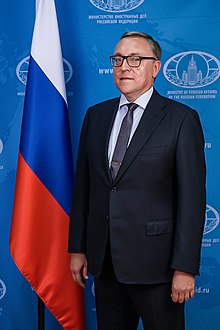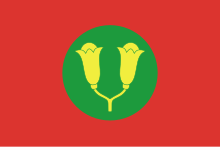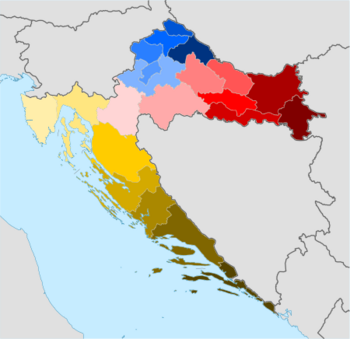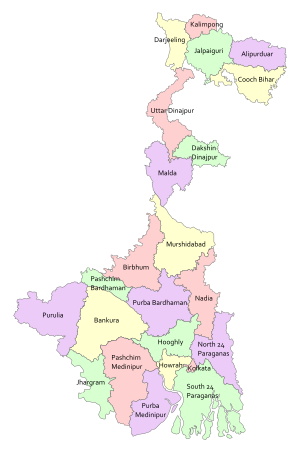
Back Portal:Politik ALS بوابة:السياسة Arabic بوابة:سياسة ARZ Портал:Политика Bulgarian প্রবেশদ্বার:রাজনীতি Bengali/Bangla Portal:Politika BS دەروازە:سیاسەت CKB Portál:Politika Czech Portal:Politik German Portal:Siyaset DIQ
| Main | Topics and categories | Tasks and projects |
The Politics portal
Politics (from Ancient Greek πολιτικά (politiká) 'affairs of the cities') is the set of activities that are associated with making decisions in groups, or other forms of power relations among individuals, such as the distribution of resources or status. The branch of social science that studies politics and government is referred to as political science.
It may be used positively in the context of a "political solution" which is compromising and non-violent, or descriptively as "the art or science of government", but also often carries a negative connotation. The concept has been defined in various ways, and different approaches have fundamentally differing views on whether it should be used extensively or in a limited way, empirically or normatively, and on whether conflict or co-operation is more essential to it.
A variety of methods are deployed in politics, which include promoting one's own political views among people, negotiation with other political subjects, making laws, and exercising internal and external force, including warfare against adversaries. Politics is exercised on a wide range of social levels, from clans and tribes of traditional societies, through modern local governments, companies and institutions up to sovereign states, to the international level.
In modern nation states, people often form political parties to represent their ideas. Members of a party often agree to take the same position on many issues and agree to support the same changes to law and the same leaders. An election is usually a competition between different parties.
A political system is a framework which defines acceptable political methods within a society. The history of political thought can be traced back to early antiquity, with seminal works such as Plato's Republic, Aristotle's Politics, Confucius's political manuscripts and Chanakya's Arthashastra. (Full article...)
Selected article
Political Animals and Animal Politics is a 2014 edited collection published by Palgrave Macmillan and edited by the green political theorists Marcel Wissenburg and David Schlosberg. The work addresses the emergence of academic animal ethics informed by political philosophy as opposed to moral philosophy. It was the first edited collection to be published on the topic, and the first book-length attempt to explore the breadth and boundaries of the literature. As well as a substantial introduction by the editors, it features ten sole-authored chapters split over three parts, respectively concerning institutional change for animals, the relationship between animal ethics and ecologism, and real-world laws made for the benefit of animals. The book's contributors were Wissenburg, Schlosberg, Manuel Arias-Maldonado, Chad Flanders, Christie Smith, Clemens Driessen, Simon Otjes, Kurtis Boyer, Per-Anders Svärd, and Mihnea Tanasescu. The focus of their individual chapters varies, but recurring features include discussions of human exceptionalism, exploration of ways that animal issues are or could be present in political discourse, and reflections on the relationship between theory and practice in politics.
Featured picture

The western (front) side of the United States Capitol. The U.S. Capitol serves as the location for Congress, the legislative branch of the U.S. federal government. It is located in Washington, D.C., on top of Capitol Hill at the east end of the National Mall. The building is marked by its central dome above a rotunda and two wings. It is an exemplar of the Neoclassical architecture style.
Selected quote
Selected biography
Cleopatra VII Thea Philopator (Koinē Greek: Κλεοπάτρα Θεά Φιλοπάτωρ lit. Cleopatra "father-loving goddess"; 70/69 BC – 10 August 30 BC) was Queen of the Ptolemaic Kingdom of Egypt from 51 to 30 BC, and its last active ruler. A member of the Ptolemaic dynasty, she was a descendant of its founder Ptolemy I Soter, a Macedonian Greek general and companion of Alexander the Great. After the death of Cleopatra, Egypt became a province of the Roman Empire, marking the end of the last Hellenistic-period state in the Mediterranean and of the age that had lasted since the reign of Alexander (336–323 BC). Her first language was Koine Greek, and she was the only known Ptolemaic ruler to learn the Egyptian language.
Did you know (auto-generated) -

- ... that nearing the end of his tenure as mayor of Tegal, Indonesia, Adi Winarso took part in a talkshow with his former political competitors?
- ... that reporter O. Kay Henderson, who has interviewed U.S. presidential candidates, is considered by national media to be an Iowa political authority?
- ... that in 1946, Margrethe Parm was appointed the director of a women's prison that had been used as a political prison during the German occupation of Norway?
- ... that after its merger with India, the last raja of Jubbal State joined the Indian Foreign Service?
- ... that although he was a former Indonesian prime minister, Soekiman Wirjosandjojo was not arrested during a political purge as he was considered a non-threat?
- ... that in her 2021 book White Evangelical Racism, professor of religion Anthea Butler called American evangelicalism a pro-Trump, "nationalistic political movement"?
More did you know...
- ...that the phrase "lipstick on a pig" may have its origins in the 18th-century expression "A hog in armour is still but a hog"?
- ...that the Pirate Party of the United States was formed after a 2006 raid by the Swedish police on the servers of The Pirate Bay, a popular file sharing website?
- ...that Andrey Kirillovich Razumovsky, at the time Ambassador of the Russian Empire to the Austrian Empire, commissioned three string quartets from Beethoven?
- ...that the National Assembly of Azerbaijan was the first secular republican parliament in the Muslim world?
- ...that in world-system theory, sociologists debate whether two world-systems have ever existed during the same period?
- ...that former Republican California State Senator Becky Morgan served on the Board of Trustees of both her alma maters, Stanford University and Cornell University?
- ...that the UK's Workers Socialist Federation began as a suffragette group?
- ...that Roman embassies to China are reported in Chinese historical accounts from as early as 166?
In this month
- May 5, 2005 – A General Election in the United Kingdom sees Tony Blair's Labour government returned to office with a reduced majority of 66.
- May 14, 1948 – The Declaration of Independence of Israel is made.
- May 18, 1948 – The first Legislative Yuan of the Republic of China officially convenes in Nanking.
News and Current events
- August 11: 4 local government areas in New South Wales, Australia locked down after COVID-19 case
- August 11: Australia: AstraZeneca vaccine access expanded by Victorian government
- August 1: Australia: Victorian lockdown lifted
- July 29: Tunisia's president dismisses prime minister, suspends parliament
- July 25: Australia: Wikinews interviews Reg Kidd, mayor of the City of Orange, about COVID-19 lockdown and local government
- July 23: South Australia enters week-long lockdown to contain COVID-19 Delta variant spread
- July 21: Technological University Dublin senior lecturer Dr Lorcan Sirr speaks to Wikinews on housing market in Ireland
- July 21: Three rural councils in New South Wales, Australia enter 7-day lockdown
- July 21: Australia: Victoria lockdown extended by a week with 85 active cases recorded
- July 15: California governor signs new state budget, eligible Californians to get stimulus payments
Topics and categories
General images
Related portals
Associated Wikimedia
The following Wikimedia Foundation sister projects provide more on this subject:
-
Commons
Free media repository -
Wikibooks
Free textbooks and manuals -
Wikidata
Free knowledge base -
Wikinews
Free-content news -
Wikiquote
Collection of quotations -
Wikisource
Free-content library -
Wikiversity
Free learning tools -
Wiktionary
Dictionary and thesaurus
Sources
More portals
© MMXXIII Rich X Search. We shall prevail. All rights reserved. Rich X Search




























































